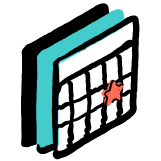“I had the pleasure of working with Syed as my software engineering tutor, specifically for Android Studio, and I couldn’t be more impressed. He explained concepts clearly and patiently, making even the more complex parts of Android development much easier to understand. Syed always made sure I was comfortable with each step before moving on, and his hands-on approach really helped solidify my learning.
Thanks to his guidance, I gained a lot more confidence in using Android Studio and understanding the app development process. I would definitely recommend Syed to anyone looking to improve their skills in Android development or software engineering in general. His support made a big difference in my progress!“
Nneka Hamilton / Apr 2025













